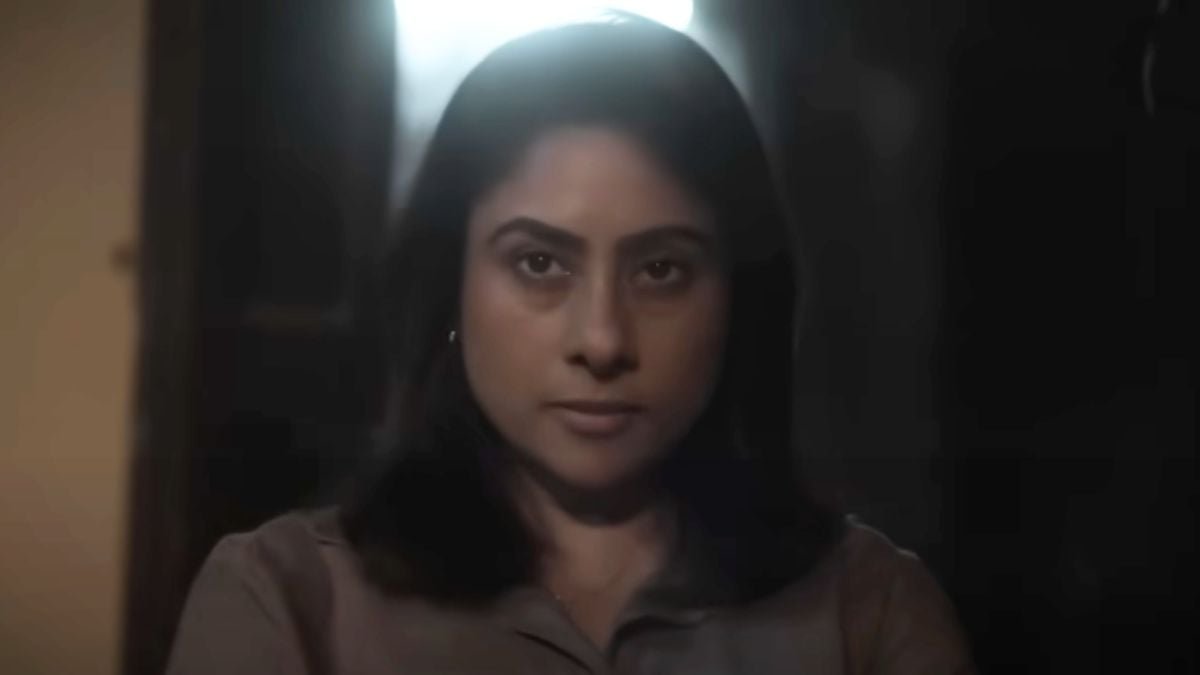Director: Sachinn Darekkar
Cast: Sai Deodhar, Tanvi Mundle, Sagar Deshmukh, Chinmay Mandlekar, and others.
Where to watch: Streaming on Zee5
Rating: **1/2
This seven-episode emotional thriller pitches itself as a deep dive into family dynamics under the lens of tragedy and vengeance, a premise oft seen on the Indian screen, both big and small.
The show, set in Mumbai, traces Tara Deshpande’s journey as a mother seeking justice after her daughter Manasvi is brutally assaulted, by a quartet of entitled young men. What could have been a taut exploration of grief, rage, and moral ambiguity instead slips into a contrived revenge saga, where more punches are pulled than landed.
The narrative promises a visceral tale of a mother’s unflinching resolve, but Tara’s quest for retribution is oddly cushioned. Enter the well-wisher, a classic Deus ex machina, conveniently alleviating the gritty struggle the premise so desperately needed. Instead of showcasing Tara’s internal and external battles, the series opts for a diluted depiction of her fight, skipping over the raw and gritty realism that such a story demands. If anything, the series is the cinematic equivalent of a postman who rings twice but faintly, leaving you unsure if he ever arrived.
Director Sachinn Darekkar attempts to spin a web of suspense, tension, and family dysfunction, yet the threads often unravel under the weight of predictability. The courtroom is replaced by murky backdoor dealings, the perpetrators are cardboard caricatures of privilege, and the police investigation is led by ACP Khandekar (Chinmay Mandlekar), whose grittiness feels more like a genre mandate than genuine depth. Tara and her husband Hemant (Sagar Deshmukh) stumble through their strained relationship, but the script barely scratches the surface of their personal conflicts.
Performances are serviceable but uninspired. Sai Deodhar, as Tara delivers a determined performance that leans on her character’s stoic resilience, but the material rarely challenges her to go beyond the expected beats of maternal anguish. Tanvi Mundle as Manasvi, has moments of spark but is more a plot device than a character. Chinmay Mandlekar’s ACP Khandekar attempts to lend gravitas to the procedural subplot, yet his efforts feel undermined by the show’s reluctance to delve into true moral complexity.
Visually, the series saves its best for last with aerial shots in the final episode offering a cinematic boost, albeit too little, too late. The cinematography that dominates the series mirrors its lack of tonal clarity—neither gritty enough to be noir nor dramatic enough to be a family melodrama.
The show’s biggest failing, however, is its inability to build genuine tension. Each twist is telegraphed well in advance, and the stakes never feel as high as they ought to. The climactic confrontation lands with a thud rather than a bang, leaving you wondering if all the preceding melodrama was worth it.
Overall, the series attempts to unpack hidden truths and personal secrets within the framework of a thriller, but its exploration is as shallow as a dried-up creek. Despite the potential of its premise and a cast capable of delivering more, the series settles for a tepid execution, offering neither the emotional heft nor the narrative edge it promises. For a show that banks on the urgency of justice, it rings perfunctorily.




